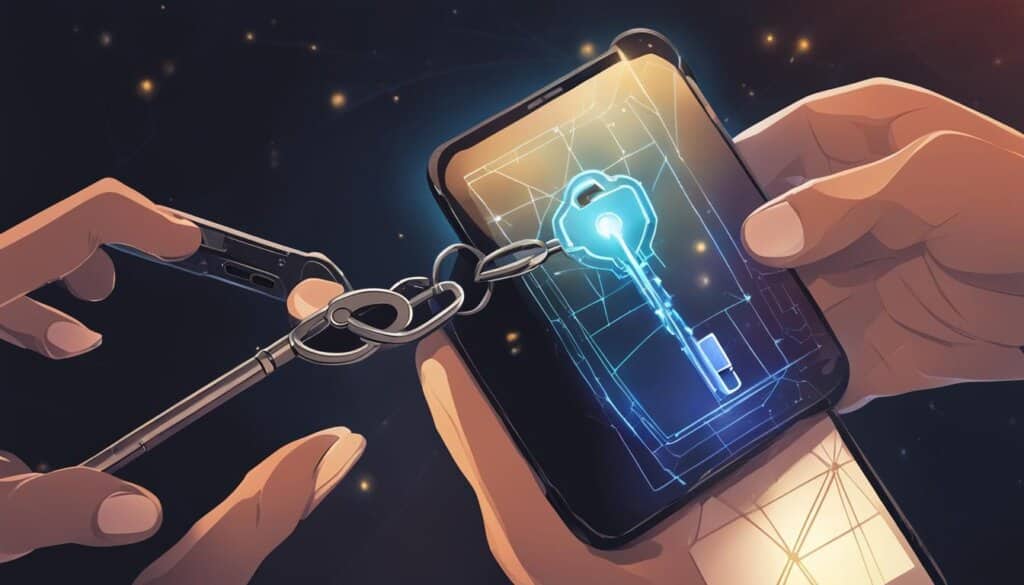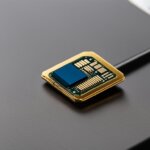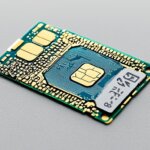Table of Contents
SIM cards, short for Subscriber Identification Module, are essential components of cellular devices. They serve as the memory chips that store crucial information, including account details, phone numbers, contacts, text messages, and other valuable data.
While SIM cards are typically associated with a specific mobile service carrier, they can be unlocked to provide users with greater flexibility and freedom. Unlocking a SIM card enables users to switch service carriers or sell their phones to new owners who can use their own SIM cards.
To unlock a SIM card, users need to obtain an unlock code from their mobile provider. Once obtained, this code can be entered into the phone, granting access to alternate carrier networks.
Unlocking a SIM card not only facilitates carrier switching but also opens up opportunities for international use. By replacing the SIM card with a local one when travelling abroad, users can enjoy local calling rates and data plans, saving on hefty roaming fees.
There are various reasons why individuals choose to unlock their cellphones. They may want to switch to a carrier that offers better coverage or more affordable plans. Unlocking also allows for the seamless transfer of ownership, giving new users the freedom to use their own SIM cards.
Mobile carriers lock phones to their networks to promote customer loyalty and recover the costs of discounted phones offered with contract plans. While sim locking provides economic incentives for carriers, it can limit consumer choice by restricting the use of other networks and features.
To unlock a SIM card, users need to input the correct SIM PIN code. If the PIN is entered incorrectly multiple times, the SIM card becomes locked and requires the use of a PUK code to unlock it. Users can obtain the PUK code from their mobile carrier’s website, packaging, or by contacting customer service.
Unlocking a SIM card grants users the autonomy to choose the carrier and plan that best suits their needs, providing them with greater control over their cellphone experience.
Locked SIM Cards and Unlock Procedure
Most phones have a SIM lock that prevents them from being used on other networks. However, they can be unlocked using a SIM unlock procedure. This involves obtaining an unlock code from the mobile provider and entering it into the phone.
It’s important to note that unlocking a SIM card doesn’t guarantee compatibility with any network. The SIM card for the new network must be compatible with the phone’s current network, whether it is a GSM or CDMA network.
To unlock a SIM card, follow these steps:
- Contact your mobile provider to request an unlock code.
- Provide the necessary information, such as your account details and phone IMEI number.
- Once you have the unlock code, insert a non-supported SIM card into your phone.
- Turn on your phone and enter the unlock code when prompted.
- If entered correctly, your SIM card will now be unlocked, allowing you to use it with other networks.
It’s worth noting that some phones may have a built-in SIM unlock feature that can be accessed through the settings menu. Refer to your phone’s user manual or contact the manufacturer for specific instructions.
Unlocking a locked SIM card requires obtaining an unlock code from the mobile provider and entering it into the phone.
If you are unsure about the compatibility of your phone with a specific network, you can check with the mobile provider or use online resources that provide network compatibility information.
Next, we will explore the benefits of unlocking your phone for international use and the various reasons why someone might want to unlock their cellphone.
International Use and Benefits of Unlocking
One common reason for unlocking a phone is to use it internationally. By unlocking the phone, users can replace the SIM card with a local SIM card from a different country and enjoy local calling rates and data plans. This is especially useful for long-term travel or frequent international trips where it is more cost-effective to use a local SIM card.
When using an international SIM card, users can avoid expensive roaming charges imposed by their home network. Instead, they can take advantage of the competitive rates offered by local carriers in the country they are visiting. This allows them to make calls, send SMS messages, and use data at affordable prices, making it easier to stay connected while abroad.
Furthermore, using a local SIM card ensures better network coverage and signal strength in the foreign country. This means users can enjoy uninterrupted communication and internet access without relying on uncertain roaming services. It also allows them to utilize the features and functionalities of their phone without any limitations imposed by their home network.
Using an international SIM card not only provides substantial cost savings but also enhances the overall user experience while using a phone abroad.
For those who require a reliable internet connection during their international travels, unlocking a phone and using a local data plan is highly advantageous. With a local SIM card, users can access the internet at high speeds and stay connected to their email, social media, and other online services without incurring exorbitant charges.
Benefits of Using a Local SIM Card:
- Affordable local calling rates
- Cost-effective data plans
- Improved network coverage and signal strength
- Uninterrupted communication and internet access
- Access to phone features without limitations
Comparison of International SIM Cards:
| Features | Local SIM Cards | Roaming Services |
|---|---|---|
| Cost | Relatively inexpensive | Expensive roaming charges |
| Network Coverage | Reliable and extensive | Dependent on roaming agreements |
| Internet Access | Fast and affordable | Costly data roaming charges |
| Phone Features | No limitations | Potential limitations imposed by home network |
As the above table demonstrates, using a local SIM card offers numerous advantages over relying on roaming services. From cost savings to improved network coverage and access to phone features, unlocking a phone and opting for an international SIM card is a smart choice for frequent travelers or those embarking on extended trips abroad.
Reasons to Unlock Your Cellphone
There are several compelling reasons why you might consider unlocking your cellphone. Unlocking your device provides you with the freedom to switch to a different service carrier, allowing you to take advantage of better coverage or more affordable plans.
Furthermore, unlocking your cellphone enables you to sell it to a new owner who can use their own SIM card, ensuring a seamless transition and continued functionality. This is particularly advantageous if you are looking to upgrade to a new device or if you no longer require your current phone.
By unlocking your cellphone, you gain the flexibility to choose a carrier and plan that best suits your needs. Whether you’re looking for enhanced data offerings, competitive pricing, or specific network features, unlocking empowers you to make an informed decision and tailor your mobile experience to your preferences.
Switch to a Different Service Carrier
One of the primary reasons to unlock your cellphone is to switch to a different service carrier. This allows you to explore alternative options and select a provider that better meets your requirements. Whether you’re seeking wider network coverage, superior customer service, or more affordable plans, unlocking your cellphone opens up a world of possibilities.
Seamless Transition for New Owners
If you’re selling your cellphone, unlocking it prior to the sale ensures a smooth transition for the new owner. By removing any carrier restrictions, the buyer can immediately insert their own SIM card and begin using the device with their preferred service provider. This improves the resale value of your cellphone and increases its appeal to potential buyers.
Customize Your Carrier and Plan
The ability to unlock your cellphone gives you the freedom to customize your carrier and plan according to your specific needs. You can select a provider that offers the best data packages, international roaming options, or unique features that align with your lifestyle. Unlocking opens up a diverse range of carriers and plans, allowing you to find the perfect fit.
| Reasons to Unlock Your Cellphone: | |
|---|---|
| Switch to a different service carrier with better coverage or more affordable plans | ???? |
| Enable a seamless transition for new owners to use their own SIM card | ???? |
| Customize your carrier and plan to suit your specific needs | ???? |

SIM Locking and Economic Incentives
Mobile carriers often implement SIM locking as a strategy to ensure customer loyalty and recover the costs associated with offering discounted phones through contract plans. By locking phones to their network, carriers can discourage customers from switching to a different service provider.
The primary economic incentive for SIM locking is to protect the investment made by carriers in providing discounted phones. When customers purchase a phone at a discounted price, the carrier expects to recoup the subsidy by retaining them as long-term subscribers. SIM locking reduces the likelihood of customers using the discounted phone with a different carrier, helping carriers maintain their customer base and generate revenue.
Locked phones often bear carrier-specific branding and may lack support for certain features of other carriers. This effectively limits consumer choice and makes it more difficult for customers to switch to a different service provider while keeping their existing phone. However, unlocked phones hold a higher market value because they can be used with any carrier and offer greater flexibility to users.
Benefits of Unlocking
Unlocking a phone grants users the freedom to choose the carrier that best suits their needs. It allows individuals to take advantage of more affordable plans, better coverage, and an extensive range of available services. Unlocked phones can also be easily sold or passed on to another user, as they are not tied to a specific carrier.
Furthermore, unlocking a phone is particularly advantageous for international travel. By inserting a local SIM card from the destination country, users can avoid expensive roaming charges and enjoy local calling rates and data plans. This convenience and cost-saving measure make unlocking a phone an attractive option for frequent travelers or those residing abroad for an extended period of time.
| Locked Phones | Unlocked Phones |
|---|---|
| Limit consumer choice | Offer greater flexibility |
| Display carrier-specific branding | Can be used with any carrier |
| May not support all features of other carriers | No feature restrictions across carriers |
| Lower market value | Higher market value |
How to Unlock Your SIM Card
Unlocking a SIM card is a simple process that requires entering the correct SIM PIN code. When you insert a SIM card into your phone, you’re usually prompted to enter the PIN code. This code is a security measure to protect your SIM card from unauthorized access. If you enter the wrong PIN code multiple times, the SIM card will become locked.
To unlock a locked SIM card, you’ll need a PUK code. The PUK code, or Personal Unblocking Key, is a unique code provided by your mobile carrier. You can obtain the PUK code from the mobile carrier’s website, the packaging of your SIM card, or by contacting customer service. Once you have the PUK code, enter it into your phone to unlock the SIM card.
After successfully entering the PUK code, you can set a new SIM PIN code. This new code will be used to secure your SIM card and prevent unauthorized access in the future. Remember to choose a code that is easy for you to remember but difficult for others to guess. It’s important to keep both the PIN and PUK codes safe and secure, as they are essential for unlocking your SIM card.
Unlocking your SIM card gives you the freedom to switch service carriers, use your phone internationally with local SIM cards, or sell your phone to someone who will use their own SIM card. By following the correct procedure and keeping your PIN and PUK codes safe, you can easily unlock your SIM card and enjoy the benefits of flexibility and connectivity.
FAQ
What information is stored on a SIM card?
SIM cards store important information such as account details, phone numbers, contacts, text messages, and other data.
How can I unlock a SIM card?
To unlock a SIM card, you need to obtain an unlock code from your mobile provider and enter it into your phone.
Can unlocking a SIM card guarantee compatibility with any network?
No, unlocking a SIM card doesn’t guarantee compatibility with any network. The SIM card for the new network must be compatible with the phone’s current network.
Why would I want to unlock my phone?
There are several reasons to unlock your phone, including switching to a different service carrier with better coverage or more affordable plans, or to sell your phone and allow the new owner to use their own SIM card.
Why do mobile carriers lock phones to their network?
Mobile carriers lock phones to their network to ensure customer loyalty and to recoup the cost of discounted phones offered with contract plans.
How can I unlock my SIM card if it becomes locked?
If your SIM card becomes locked, you will need a PUK code to unlock it. The PUK code can be obtained from your mobile carrier’s website, packaging, or by contacting customer service.












